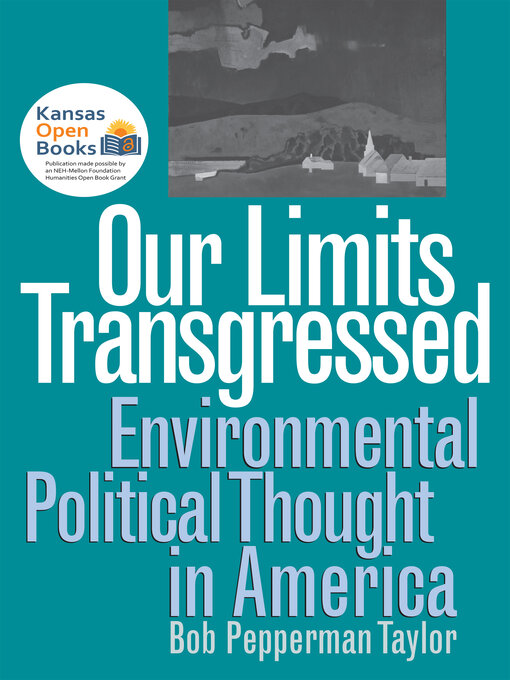Is democracy hazardous to the health of the environment?
Addressing this and related questions, Bob Pepperman Taylor analyzes contemporary environmental political thought in America. He begins with the premise that environmental thinking is necessarily political thinking because environmental problems, both in their cause and effect, are collective problems. They are also problems that signal limits to what the environment can tolerate. Those limits directly challenge orthodox democratic theory, which encourages expanding individual and political freedoms and is predicated on growth and abundance in our society. Balancing the competing needs of the natural world and the polity, Taylor asserts, must become the heart of the environmental debate.
Contemporary environmental thinking derives, according to Taylor, from two well-established traditions in American political thought. The pastoral tradition, which he traces from Thoreau through John Muir to today's deep ecology, biocentrism, and Green movement, appeals to moral lessons that nature can teach us. The progressive tradition—which he traces from Gifford Pinchot to the apostate neo-malthusians (who reject the commitment to democratic equality) and liberal theorists like Roderick Nash, Christopher Stone, and Mark Sagoff—focuses on the role that nature plays in supporting a liberal democratic society. This analysis sidesteps the usual anthropocentric-biocentric formulation of the debate, which tends to center on the most appropriate conception of nature abstractly considered, and reorients the discussion to a consideration of the relationship between our political and environmental values. If we are to stem the thoughtless pillaging of the environment, Taylor contends, that's where the changes must occur.
Any satisfactory resolution of the tension between the garden and the machine must draw upon the best of both the pastoral and progressive traditions, Taylor concludes. The best of pastoralism teaches us that any reform must challenge the human arrogance and crude materialism that permeates much of liberal society.
In addition to Nash, Stone, and Sagoff, Taylor discusses other contemporary thinkers such as Garrett Hardin, Paul Ehrlich, Robert Heilbroner, William Ophuls, Julian Simon, Robert Paehlke, J. Donald Moon, Kirkpatrick Sale, J. Baird Callicott, Holmes Rolston, Paul Taylor, Barry Commoner, and Murray Bookchin.
Open access edition funded by the National Endowment for Humanities and the Andrew W. Mellon Foundation Humanities Open Book Program.

